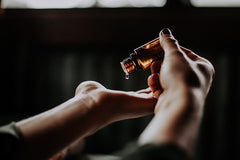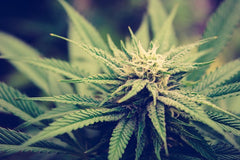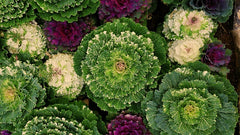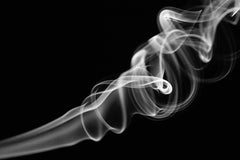The CBD FAQ
The Battle Balm CBD Frequently Asked Questions

Is Battle Balm CBD Legal?
At present, CBD from hemp sources is legal in all 50 states. The 2018 Farm Bill removed hemp from the legal definition of marijuana in the Controlled Substances Act. This made hemp, a different variety of the cannabis plant, legal to grow and use. Battle Balm CBD products are made using hemp-derived CBD, and therefore, legal to use and be distributed nationwide. Note that our CBD products contain less than 0.3 percent THC as required by federal law. State laws vary.

What are the ways I can take Battle Balm CBD?
There are 2 ways to take Battle Balm CBD, internally and externally. The internal method of consumption is either by ingestion or by suppository. The external method is typically by topical application. More information on the various ways of taking CBD will be in a separate article coming soon.
Which is the BEST way to take CBD?
It depends. There are many topical and edible products available on the market. Battle Balm CBD falls into the external application half of CBD usage. Transdermal absorption is the key delivery mechanism and that allows for the user to apply the lotion, cream, spray, or balm to the skin. Musculoskeletal complaints such as tightness, swelling, sprains, strains, edema, arthritis and joint pain, etc., are best treated with high quality topicals such as Battle Balm CBD. Local tissue, joint, and muscles can be directly targeted for pain management and thus affect the body exactly where CBD is needed. External application is a very efficient and cost effective way to use CBD.

How does CBD work?
CBD is not a psychotropic drug, so it doesn't affect the body negatively in the way that impairs motor and sensory function. CBD does affect the endocannabinoid system (ECS) in the body. This system contains nerve receptors that interact with cannabinoids and can affect many physiological and cognitive functions in the body. Wikipedia has more in depth information about the ECS. At present, we know that high quality CBD can affect the ECS and treat functions such as: memory, appetite, energy, stress response, immune function, pain, sleep, and more.

Will taking CBD hurt me?
In general, CBD isolate is safe to use for most people. That being said, we recommend that you consult with your doctor if you have any questions about potential drug interactions.
The World Health Organization (WHO) has claimed that CBD is "safe, well-tolerated, and not associated with any significant adverse public health effects."

Will I Get High Taking CBD?
CBD is non-psychoactive (unlike THC) and usage will NOT result in feeling "stoned" or "high". The numerous therapeutic benefits of CBD range from treating epilepsy to cancer. The study of CBD is ongoing and research continues to bring positive light on this growing trend in natural medicine. The World Health Organization has even made the claim that CBD has no adverse effects on public health. It's a statement of it's incredible potential as a healing medicine with few side-effects.
Will CBD trigger a positive drug test?
In general, the answer is NO. The urine drug test is for THC, namely the THC-COOH molecule. This marker test does not react to CBD.
Here's the catch. Some CBD-rich products can legally contain levels of THC that fall under the maximum 0.3% THC concentration allowed in the United States. So theoretically, a heavy user of certain CBD products can raise the amount of THC in the body to levels above 0.3%. It's not a typical scenario, but one must recognize that the urine test can trigger positive in extreme cases where a user accumulates enough THC in his/her system from frequent product use.
That being said, Battle Balm CBD products source triple-tested +99% pure CBD isolate to help ensure that our products are THC free to the extent recognized by United States law. WE DO NOT MANUFACTURE PRODUCTS WITH THC IN OUR BATTLE BALM CBD LINE. OUR PRODUCTS COMPLY WITH FEDERAL LIMIT OF LESS THAN 0.3% THC CONCENTRATION. (If you test positive for the urine screening test while using our products, you may be using another product that contains measurable levels of THC.)

How is CBD extracted?
There are a few extraction methods to getting pure CBD out of plants, some good and some bad. Below are the basic methods used in the industry.
Supercritical CO2 extraction of purified hemp oil removes any plant matter and other compounds to give you the CBD isolate. It's probably considered the safest method to use. Battle Balm CBD products use this extraction method to provide the best quality CBD products to our customers.
Carrier Oil extraction of CBD requires an oil, such as olive oil to be heated at a optimal temperature for a length of time with cannabis plant material inside. It's akin to steeping tea leaves in water, except here it's C. sativa infused in oil. This method is safe and is typically done in very low quantities.
Solvent extraction of CBD uses harsh hydrocarbons, such as propane and hexane to pull out the cannabinoids from the plant matter. It's dangerous as the hydrocarbons are very flammable and the processing could lead to trace contaminants in the end product which are toxic.

What is the Entourage Effect?
The entourage effect refers to the combined power of multiple cannabinoids, terpenoids, and flavonoids in producing a desired effect, typically greater than the power of using a single compound by itself.
What about CBC, CBG, CBN, THC, and THCV?
CBC, or cannabichromene, is a potential anti-inflammatory and anti-viral agent in cannabis and has been researched to provide analgesic and antidepressant effects.
CBG, or cannabigerol, is found in small amounts in cannabis. Inside the plant, CBG converts into many other cannabinoids, mainly THC and CBD.
CBN, or cannabinol, is found in trace amounts in cannabis and activates the CB1 and CB2 receptors, similar to CBD.
THC, or tetrahydrocannabinol, is the main psychoactive component of cannabis. It is an aromatic terpenoid and contributes to the particular smell of marijuana.
THCV, or tetrahydrocannabivarin, is similar in name to THC, but produces different effects. It can be found in large amounts in the cannabis plant and is being studied in glucose intolerance in obesity.
